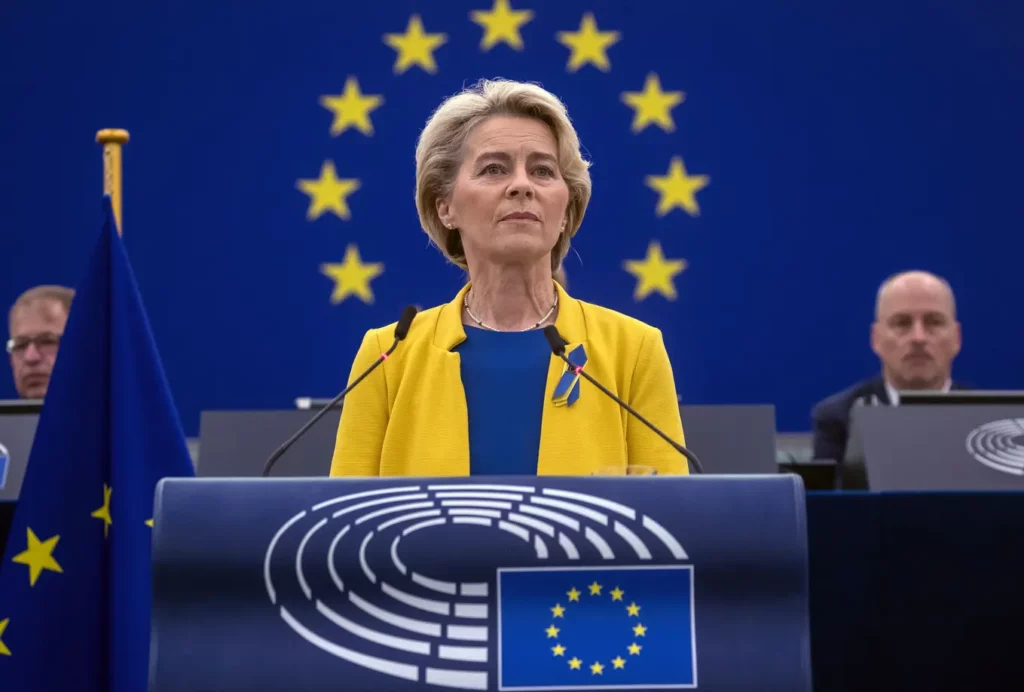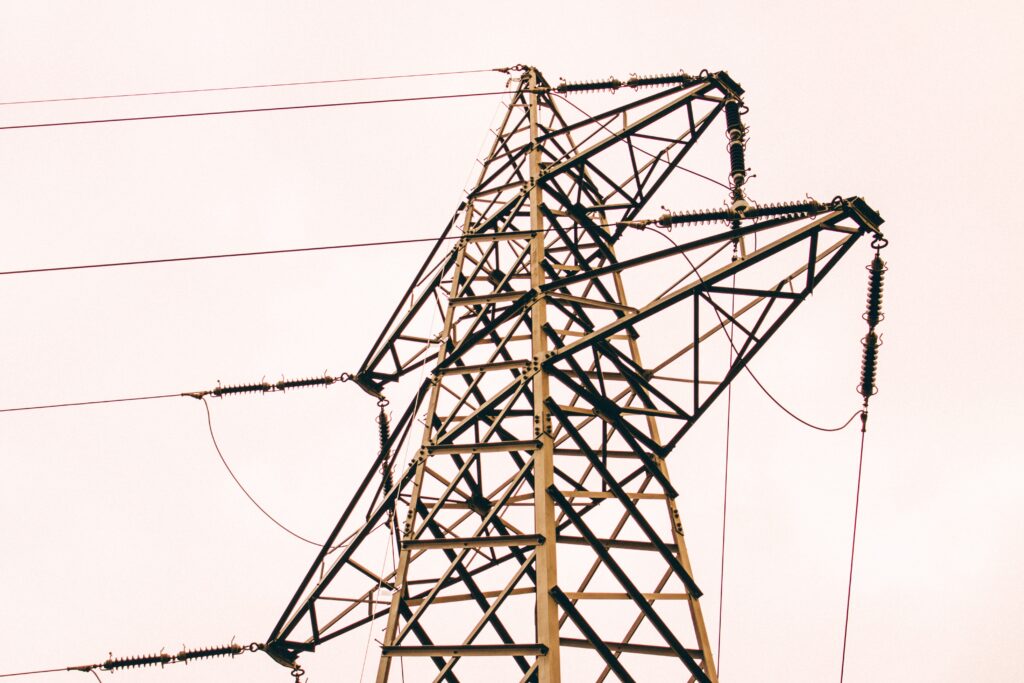الخميس, سبتمبر 15th 2022

European Commission President Ursula von der Leyen at her 2022 State of the Union address.
Energy is the most pressing issue facing Europe right now: Where to get it, how much it should cost and how to distribute it. The President of the European Commission, Ursula von der Leyen, said as much this week in her State of the Union address – likening the war in Ukraine to a war on all of Europe.
A war on energy
“A war on our energy supply, a war on our economy, a war on our values and a war on our future,” von der Leyen said in her speech. Von der Leyen’s solution? A hefty windfall tax and severe energy restrictions – a signal to many that Europe is headed into a devastating recession.
The EU is asking member states to cap the revenues from of non-gas power producers (such as, electricity companies) and require them to pay a “solidarity contribution” from their annual revenue. According to von der Leyen’s research, about 140 billion euros in energy would be distributed under this model.
Critics of von der Leyen’s plan say that the cap could discourage companies from making new investments at a critical juncture. Some market experts say that the cap will actually increase demand and, therefore, compound the problem at the heart of the crisis: low supply.
“In these times it is wrong to receive extraordinary record profits benefitting from war and on the back of consumers,” she said, adding “Russia keeps on actively manipulating our energy market … This market is not functioning anymore.”
For now, Europe still relies on Russia for only 9 percent of its natural gas needs, down from 40 percent at the beginning of 2022; but, Russian President Vladmir Putin can cut it to zero at any moment. While it is too soon to tell whether her proposal will succeed in weaning the EU off the Russian spigot, Switzerland is busy with its own

خطوط الكهرباء خارج العاصمة السويسرية برن.
What are their options?
Experts say companies facing this fate have four options:
Some companies, like Gerlafingen steelworks, are considering the fourth option. Gerlafingen told local newspaper ن زد زد that it has recently acquired an application to run part-time, but cantonal authorities say they need more evidence before granting permission.
“The rules for short-time work are insurance and not an instrument for subsidizing electricity prices,” Boris Zürcher, the Labor Directorate at the State Secretariat for Economic Affairs (SECO), told ن زد زد. Businesses must prove that moving to a short-time work model is unavoidable and will be a temporary solution.
Some industry groups are petitioning cantons, who own the electricity providers, to land on “reasonable” pricing policies – ones that would include the option of long-term contracts. Swissmem advocates that cantons should also offer “long-term loans” for businesses that may fail due to electricity price hikes or even financial grants that never need to be repaid.
But the only companies that the Swiss federal government has approved of bailing out so far are the electric companies.

The electricity the Kernkraftwerk plant makes a substantial contribution towards Switzerland’s energy supply. The group Stop Blackouts is petitioning the government to make nuclear energy a priority.
Bailing out the providers
Swiss Parliament this week approved a CHF 10 billion plan to hand out emergency state credits to struggling electricity companies. The move comes one week after the government agreed to give a CHF 4 billion credit to Swiss multinational electricity provider Axpo.
Supporters of the bailout, like Energy Minister Simonetta Sommaruga and other Green Party members, say it is the right thing to do while electricity providers face unparalleled price irregularities. Critics of the move, like those from the Swiss People’s Party, say electricity companies did not prepare well enough and are already extracting excessive profits.
For now, Swiss residents seem to be bearing the brunt of the crisis.
It has been reported that households are facing a 27 percent, on average, increase to their electric bills. Residents have also been asked to prepare for winter by stocking candles, wood and gas cookers in case the country must resort to rolling blackouts to conserve energy. Moreover, Swiss residents who violate new heating restrictions (no higher than 19 degrees C) could face fines and up to three years’ jail time. (Read more: ‘Snitch on your neighbor’ poster causes panic in Switzerland).
Switzerland produces more energy than its population can consume most of the year – mostly through nuclear and hydropower sources. During the winter, Switzerland must rely on imports from neighbors (75 percent of Switzerland’s winter energy consumption goes to heating, alone). Needless to say, this approach will likely face fierce opposition by the Swiss public.
But even in the seemingly darkest moments, there is hope. Switzerland’s oldest nuclear reactor, Beznau 1, was given the green light this summer to begin operating again. Moreover, France is planning to build up to 14 new nuclear reactors.
يمكن مشاركة هذه المقالة وإعادة طباعتها مجاناً، شريطة أن تكون مرتبطة بشكل بارز بالمقالة الأصلية.
